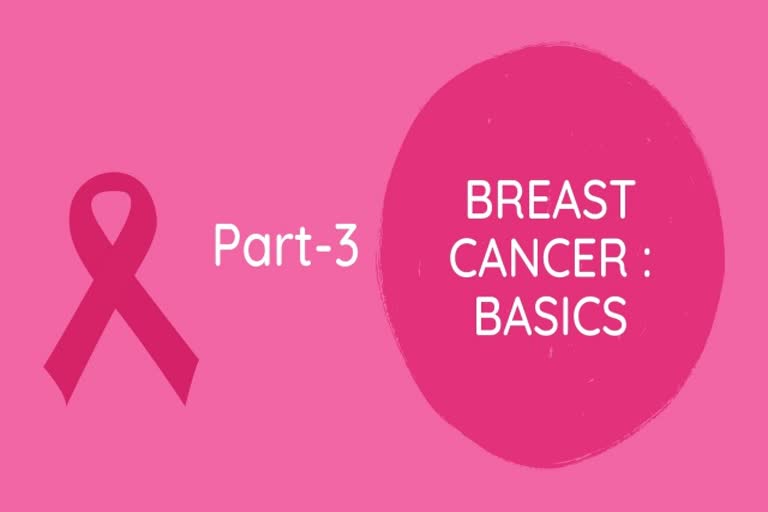ETV Bharat Sukhibhava was in conversation with Dr P. Raghu Ram, MS, FRCS (Eng), FRCS (Edin), FRCS (Glasg), FRCS (Irel), Hon FRCS (Thailand), FACS, Founder, CEO & Director, Ushalakshmi Breast Cancer Foundation and Director, KIMS-USHALAKSHMI Centre for Breast Diseases, for more insights on understanding Basics of Breast Cancer.
Pratima (name changed) a 62-year-old lady noticed a right breast lump of three months duration. After a process of Triple assessment, she was diagnosed with Breast cancer.
What is breast cancer and where does it arise?
Breast tissue is made up of ducts and lobules. Breast cancer occurs when a single cell in the breast begins to divide and grow in an abnormal way.
There are different types of Breast cancer – also known as Carcinoma. Broadly, breast cancer arising from the ducts is referred to as Ductal carcinoma (most common form of breast cancer) & cancer arising from the lobules is referred to Lobular carcinoma.
It is important that doctors have accurate diagnosis so that they can plan the most appropriate treatment for the individual
What is the difference between Stage & grade of cancer?
Diagnosis of Breast cancer does not automatically mean that it has or will spread; just that it has the potential to spread. The potential for cancer to spread is referred to as GRADE of cancer. Breast cancer is graded 1, 2 or 3. In general a lower grade (Grade 1) indicates a slowly growing cancer while a higher Grade (Grade 3) indicates a faster-growing cancer.
The extent of spread of cancer is known as STAGE of the disease.
Stage 1Tumour less than 2 cms. No Spread
Stage 2Tumour 2 – 5 cms with or without lymph node involvement. No spread to other parts of the body
Stage 3Tumour more than 5cms or tumour any size but is fixed either to chest wall, muscle or skin
Stage 4 Tumour any size, Lymph nodes may or may not be involved, but cancer has spread to other parts of the body
(Source: International Union against Cancer – UICC)
What are the aims of treating breast cancer?
- To remove cancerous area from the breast and any affected lymph nodes in the arm pit
- Destroy any cancerous cells that might have already spread from the breast into the body through blood steam or the lymphatic system
What are the modalities available for treating breast cancer?
